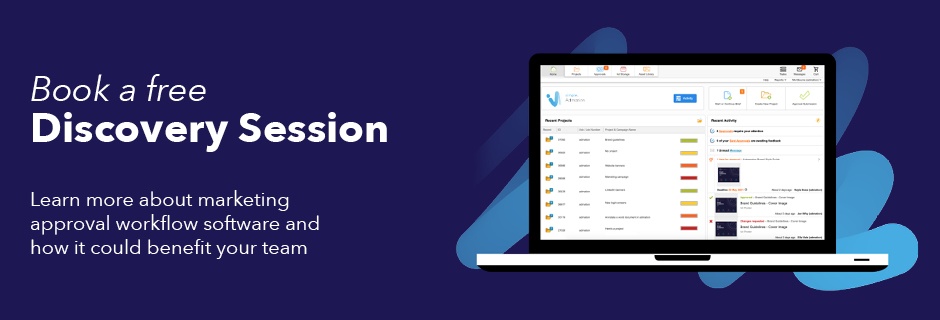Why Marketing Operations Has Become Essential for Financial Services Teams in 2025
Marketing in financial services has always been complex, but 2025 brings a new level of pressure. Tightening regulations, rising compliance expectations, increased scrutiny from regulators, and a wave of new competitors mean marketing teams must work smarter, faster and with more control.
Budgets are also under pressure. According to Gartner’s 2024 Financial Services Marketing Budget Benchmark, marketing investment has tightened again, dropping to around 7% of company revenue.
https://www.gartner.com/en/marketing/research/financial-services-marketing-budget-benchmark
At the same time, customer expectations continue to grow. Taboola’s 2025 Financial Services Marketing Trends report found that 71% of consumers now expect personalised interactions — and more than half prefer mobile banking as their primary channel.
https://www.taboola.com/marketing-hub/financial-services-marketing-trends
To meet these demands safely, many organisations are turning to structured marketing operations and marketing compliance platforms that streamline workflows, reduce risk and provide the visibility teams need in a regulated environment.
/AdobeStock_387763828.jpeg?width=7080&height=3963&name=AdobeStock_387763828.jpeg)
Below are the biggest challenges facing financial-services marketers today — and how marketing operations platforms help them work with greater accuracy and confidence.
Challenge 1: Rising Competition Across Financial Services
Competition continues to intensify with digital banks, insurtechs, fintechs and new investment products entering the market. With more choice available, customers have higher expectations and lower switching barriers.
Marketing teams are expected to deliver more campaigns, faster, while adhering to strict regulatory requirements.
A strong marketing operations solution helps teams:
- Standardise processes across the entire marketing lifecycle
- Improve visibility of in-progress and upcoming work
- Reduce delays caused by scattered approvals
- Give stakeholders clarity on responsibilities and timelines
With clearer workflows and less friction, teams can increase output without increasing risk.
Challenge 2: Rebuilding Consumer Trust
Trust remains a major challenge for banks, insurers and wealth providers. Investor’s Business Daily’s 2025 Consumer Trust Survey found that confidence in financial institutions remains fragile, with customers demanding clearer and more consistent communication.
Customers now expect:
- Accurate information
- Clear explanations of complex products
- Transparent updates
- Communication that feels consistent across all channels
A structured approval workflow helps teams deliver reliable messaging by ensuring:
- Only finalised, approved content is released
- Disclaimers and disclosures are always correct
- Outdated information is automatically excluded
- Every version is tracked and traceable
Clear, controlled communication is one of the strongest ways to rebuild trust in a regulated industry.
Challenge 3: Increasing Regulatory Scrutiny
Regulatory expectations continue to intensify. According to Piper Alderman’s 2024 Financial Services & Fintech Review, regulator focus across ASIC, APRA and ACCC has increased, with greater scrutiny on communications, product information and digital risk.
Further, Protiviti’s 2024 Compliance Outlook highlights rising pressure on organisations to monitor digital communication, maintain complete audit trails and ensure operational resilience.
https://www.protiviti.com/au-en/whitepaper/top-of-mind-compliance-issues-financial-institutions-2024
For marketing teams, the risk areas include:
- Incorrect or missing disclaimers
- Outdated product information
- Unapproved claims
- Inconsistent communication across channels
- Multiple “live” versions of the same asset
- Untracked changes or approvals
Marketing compliance software addresses these challenges by embedding compliance into every workflow.
Teams gain:
- Tiered approval pathways or multi-stage approvals
- Mandatory compliance approval checklists
- Automated audit trails
- Structured approval templates
- Version control for all documents and assets
For deeper guidance, see our guide to mastering marketing compliance.
According to GenAI’s 2024 analysis, automating compliance checks can reduce approval cycles by over 20%.
Challenge 4: Data and Insight Gaps Across Regulated Organisations
Financial-services organisations rely on large, interconnected systems — CRM, campaign tools, underwriting platforms, analytics stacks and more. But these systems are often siloed.
This makes it difficult for marketing leaders to:
- Track campaign status
- Identify bottlenecks
- Understand the workload and capacity of resources
- Review approval turnaround times
- Demonstrate operational ROI
McKinsey’s State of Brand & Marketing Operations report shows that companies with strong marketing operations frameworks deliver faster speed-to-market and lower compliance risk.
https://www.mckinsey.com/capabilities/growth-marketing-and-sales/our-insights/the-state-of-brand-and-marketing-operations
Marketing operations platforms centralise:
- Workflows
- Approvals
- Timelines
- Compliance stages
- Asset versions
- Resourcing data
Creating a single operational view increases accountability and helps teams work more predictably.
Challenge 5: Maintaining Brand Governance and Consistency
Brand governance is especially critical in regulated industries. With multiple teams, agencies and regional offices involved, the risk of outdated or off-brand content slipping through is high.
A centralised digital asset library helps teams:
- Control which assets are available
- Enforce template and disclaimer use
- Prevent outdated files from being used
- Apply expiry dates to sensitive content
- Ensure only pre-approved materials go live
This is increasingly important as regulators pay closer attention to communication governance. Reuters’ 2024 analysis revealed that 63% of financial organisations are not adequately monitoring staff messaging apps — creating untracked communication and potential compliance exposure.
Marketing operations gives teams the control they need to maintain accuracy, brand consistency and compliance across every channel.
The Bottom Line
Financial-services marketing teams are operating in an environment of rising compliance expectations, tight budgets, increasing scrutiny and complex customer needs.
Marketing operations — through stronger workflows, compliance integration and structured approvals — helps teams:
- Reduce risk
- Strengthen governance
- Increase output safely
- Improve speed-to-market
- Maintain full accuracy and consistency
- Gain visibility across every step of the process
- Build trust through reliable communication
The Admation is designed for marketing teams in regulated industries, helping them deliver compliant, high-quality work with confidence.
To learn more or speak with a specialist, you can book a discovery session with our team.

